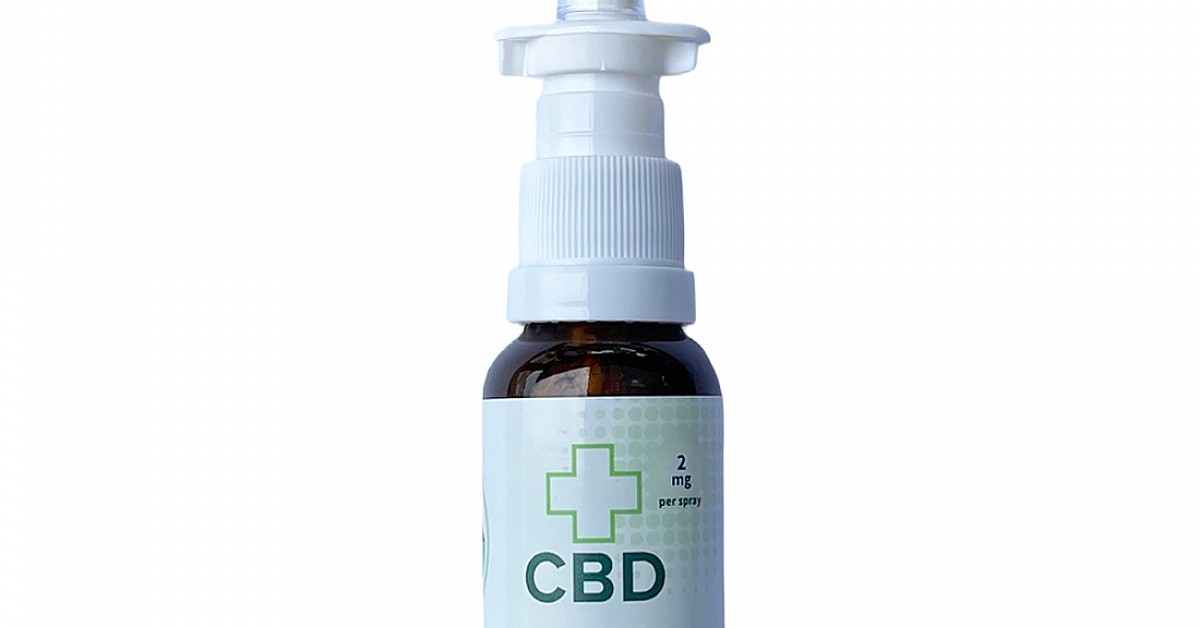
How Cannabis and CBD Nasal Sprays Operate: Mechanisms Unveiled
Cannabis nasal spray is a new innovation, but will it be competitive with more established routes of administration? Many people who enjoy the herb choose to vape or smoke it, which releases cannabinoids into the bloodstream after entering the lungs’ alveoli. Others prefer to prepare edibles in the kitchen, which subject THC to first-pass metabolism and produce effects that are much stronger and more enduring. These two methods are both traditional and efficient.
THC strips and sublingual oils are two more recent products that are still gaining popularity. Nasal sprays move things up a level, or more precisely, a body part. Similar to a variety of medications currently available on the market, these products are given into the nasal airways to produce the desired effect. But how precisely do they operate? And what advantages do they have? Let’s dive in.
Before delving into the world of medicinal cannabis in Shreveport, it’s crucial to understand that legal access is contingent upon having a valid medical marijuana card Shreveport. Without this card, the use of medical cannabis is not permitted within Shreveport.
Cannabis Nasal Sprays
Most likely, you’ve used a nasal spray product to treat allergies or unclog your nose at some point. They are so effective because they deliver medication right to the area that is harmed. Nasal sprays have an immediate effect as opposed to swallowing a pill and waiting for the active molecules to enter the bloodstream, sinuses, and nose.
The idea behind cannabis nasal sprays takes the same course. These medications work right inside the sinuses and nostrils, as opposed to concentrating on the lungs or digestive system. Because of this, cannabis and CBD nasal sprays are becoming more common in dispensaries and medical marijuana dispensaries. Given their rapid onset of effects, they will probably also catch on with more adventurous recreational users.
Functioning of Cannabis Nasal Sprays
Similar to nasal sprays that deliver decongestants, cannabis sprays function similarly. A nozzle on each bottle sprays a fine mist into the nasal cavities. The endocannabinoid system (ECS), whether it is CBD or THC in a nasal spray, interacts with the epithelial cells in the nasal cavity. This signaling network, which is made up of signaling molecules (endocannabinoids), receptors, and enzymes, functions as a general human body regulator and aids in maintaining the balance of a variety of physiological systems. In other words, it promotes homeostasis.
Three factors that underlie problems with the nasal cavity and sinuses are immunity, inflammation, and allergies, all of which are significantly influenced by the ECS. Studies are currently being conducted to determine how cannabinoids like THC and CBD affect ECS receptors and enzymes, and how this may affect how these molecules affect infections, inflammation, and an overly aggressive immune response (autoimmunity). Cannabis nasal sprays are applied to the nose and sinuses, but because of their non-local action, they have the potential to affect a wide range of physiological functions.
Advantages of Cannabis Nasal Sprays
Few human studies have looked at the effects of marijuana nasal spray, so their advantages are still unknown. Nevertheless, some studies have examined the plant’s effect on sinus-related symptoms. For instance, although bacterial and fungal infections of the upper respiratory tract can also be brought on by viruses. The antimicrobial potential of a few cannabinoids is currently being studied by researchers in the hopes of discovering organic anti-infective agents.
Additionally, sinusitis (the enlargement of the hollow spaces in the cheekbones and forehead) develops as a result of an infection or allergic reaction. Infection-related inflammation is a component of the immune response. However, in cases of chronic infection and allergic sinusitis, this response can become grating and problematic. Studies are being conducted to determine whether cannabinoids, such as CBD, have any effect on chronic inflammation, possibly even indirectly.
CBD and Nasal Polyps
Soft tissue tumors called nasal polyps develop inside the nose. Nasal polyps are benign (non-cancerous) and typically painless, but if left untreated, they can develop into a serious problem. The mucous membrane, a type of tissue that lines the nasal cavity and warms, humidifies, and filters the air we breathe, gives rise to these growths. Similar to a cold, nasal polyps cause symptoms that last until they are treated rather than going away quickly. Overall, the signs and symptoms are:
- Congested nose
- Clogged nose
- Nasal drip after.
- Snoring Bleeding nose
- Reduces the ability to taste and smell
- Bruising and irritation
Nasal polyps can enlarge to the point where they obstruct the sinus and nasal passages if left untreated. This can worsen breathing issues and raise the risk of infection. So, can CBD nasal sprays help to treat nasal polyps’ symptoms? The aforementioned studies are looking into possible effects related to the condition, like inflammation and bacterial infection, but there isn’t enough data to confirm cannabidiol’s effectiveness in this regard.
THC vs CBD Nasal Sprays
As the two cannabinoids affect the ECS differently, THC and CBD nasal sprays have different effects. Commence with THC. THC, the main psychoactive component of cannabis, interacts with the ECS’s CB1 receptor. In doing so, the molecule alters dopamine signaling, which results in the familiar cannabis high. The CB2 receptors, which are primarily found in the immune system, are another location where the cannabinoid binds. The “expanded ECS,” or endocannabinoid one as it is known to science, contains additional sites where THC can bind. Studies are looking into this phytochemical potential anti-inflammatory and painkilling properties in addition to its ability to induce a psychoactive experience.
Are Cannabis Nasal Sprays Associated with Health Risks?
In some situations, cannabis nasal sprays can be dangerous. Any nasal spray can harm the tissues of the nose if used excessively. More specifically, THC and CBD may interact with other medications and cause adverse events in some people when used in cannabis nasal sprays. For the former, THC is not recommended for people who are prone to mental health problems. Regarding the latter, users are advised to speak with their doctor before using such products because CBD alters how the liver processes many pharmaceutical drugs.
The Future Outlook for Cannabis Nasal Sprays
Cannabis nasal spray may initially seem strange, particularly to recreational users. These goods may, however, be a useful means of getting cannabinoids to the right places. Additionally, users may be able to avoid any risks associated with smoking, vaping, and edibles as well as the slow-acting and occasionally overwhelming effects of inhaling or ingesting cannabinoids.
Although more human studies are required to assess the efficacy of marijuana nasal spray in a clinical setting, we can expect to continue seeing the use of pharmaceutical-grade tools and procedures for cannabinoid delivery.
If you’re experiencing inflammation, allergies, or sinus problems and considering incorporating cannabis into your medical treatment, it’s imperative to consult with a medical marijuana doctor. They can guide you through the legal process and grant you access to medical marijuana while residing in Shreveport.







